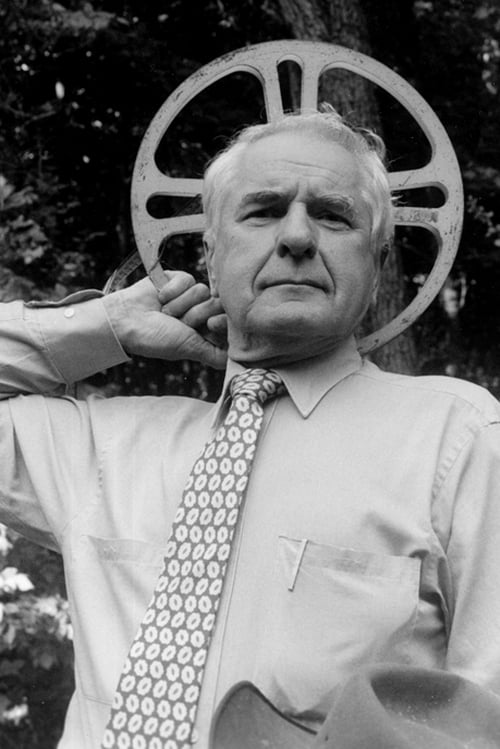Adolfas Mekas
Рождение : 1925-09-30, Semeniškiai, Lithuania
Смерть : 2011-05-31
История
Adolfas Mekas (born on September 30th 1924 in Semeniskiai, Lithuania and died on May 31st 2011 in Poughkeepsie, New York) was a Lithuanian filmmaker, writer, director, editor, actor, educator and mentor. Adolfas Mekas collaborated with his brother Jonas Mekas to establish the seminal magazine Film Culture, and the Film-Maker’s Cooperative. He was associated with George Maciunas as well as the Fluxus art movement. His short films incorporate a comic and anarchic spirit, highlighted in his feature ‘Hallelujah the Hills’ (1963), which was featured at the Cannes Film Festival and is now classified as an American classic. Adolfas Mekas played a key role in the experimental film society, the ‘New American Cinema’ in the 1960s.

A short portrait of Jonas Mekas by filmmaker and veteran Jonas chronicler Peter Sempel.

Self
A compilation of over 30 years of private home movie footage shot by Lithuanian-American avant-garde director Jonas Mekas, assembled by Mekas "purely by chance", without concern for chronological order.
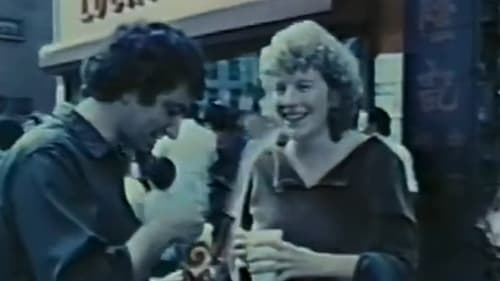
Self
Filmmaker Jonas Mekas films 160 underground film people over four decades.

Dr. Corbin
A ramshackle underground SF satire set and shot in the self-absorbed art world of lower Manhattan, written, produced, and directed by Joe Gibbons, who also plays one of the lead parts. Gibbons plays a mad scientist who's developed a technique for transferring personalities from one person's body to another; he becomes obsessed with an outlaw artist (played by performance artist Karen Finley) who destroys paintings in various galleries as a form of anarchist, anticapitalist protest.
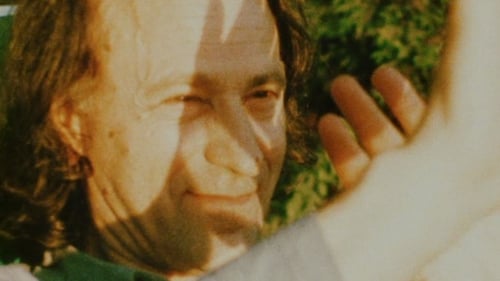
Self
«Фильм состоит из 124 коротких скетчей, каждый продолжительностью от полминуты до примерно двух минут. Портреты людей, с которыми я провел время, мест, времен года, погоды (штормы, снегопады, метели и так далее). Многое о моих друзьях кинематографистах - улицы и парки Нью-Йорка - короткий побег на природе, за город - ничего зрелищного, неважного праздника жизни, который к настоящему времени прошел, и остается только в качестве записи в этих личных кратких набросках...» Йонас Мекас.

Self
Jonas Mekas adjusts to a life in exile in New York in his autobiographical film, shot between 1949 and 1963.

Editor
A home movie by Adolfas Mekas and wife Pola Chapelle on their travels to Lithuania and Europe. It was filmed concurrently with the more highly regarded “Reminiscences of a Journey to Lithuania” by Jonas Mekas, brother to Adolfas.

Himself
A home movie by Adolfas Mekas and wife Pola Chapelle on their travels to Lithuania and Europe. It was filmed concurrently with the more highly regarded “Reminiscences of a Journey to Lithuania” by Jonas Mekas, brother to Adolfas.

Director
A home movie by Adolfas Mekas and wife Pola Chapelle on their travels to Lithuania and Europe. It was filmed concurrently with the more highly regarded “Reminiscences of a Journey to Lithuania” by Jonas Mekas, brother to Adolfas.
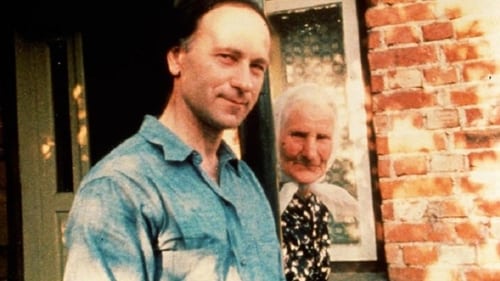
Himself
Йонас Мекас впервые возвращается в Литву после 25 лет жизни в изгнании. Первая часть авангардисткого кинодневника переносит нас в Нью-Йорк 50-х годов, вторая посвящена поездке в родную деревню Семенискяй, а в третьей показано последующее путешествие режиссера по Австрии.

Editor
An attractive youth counselor must resort to murder in order to be free from her sordid past.

Himself
During the trip back to Lithuania, Jonas Mekas made Reminiscences of a Journey to Lithuania, Adolfas Mekas made Going Home, while Pola Chapelle, Adolfas’ wife, made this Journey to Lithuania, which both Jonas and Adolfas said was the best of these three films.

Editor
A feature documentary about Cuba’s youth: the student, the worker, the peasant, the teacher, the soldier. These young compañeras and compañeros illustrate what the Cuban Revolution is really all about as they discuss their thoughts on the revolution, theories on guerrilla warfare, commitment to building Che’s “New Man”, and camaraderie with those fighting for change across the globe.

Director
A feature documentary about Cuba’s youth: the student, the worker, the peasant, the teacher, the soldier. These young compañeras and compañeros illustrate what the Cuban Revolution is really all about as they discuss their thoughts on the revolution, theories on guerrilla warfare, commitment to building Che’s “New Man”, and camaraderie with those fighting for change across the globe.

International Cast of Actors: Jonas Mekas, from Lithuania, poet and film-maker; Louis Brigante, from Madagascar, poet and publisher; Storm De Hirsch, from Holland, poetess, seer and film-maker; Pola Chapelle, from Tierra del Fuego, singer and motel operator; Adolfas Mekas, from Lapland, basket weaver and film director; Contessa Angela Maria Andrecci di Castiglione, from Italy, opera singer.
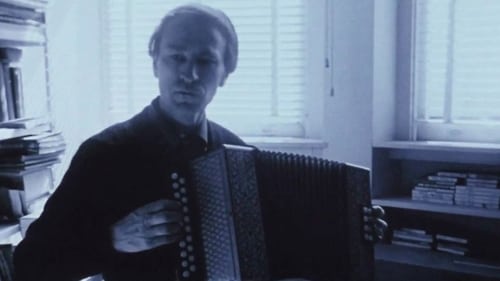
Self
An epic portrait of the New York avant-garde art scene of the 60s.

Music
Arthouse portraiture of a disestablishmentarian during his six-year draft dodge.

Editor
Arthouse portraiture of a disestablishmentarian during his six-year draft dodge.

Card Player
Arthouse portraiture of a disestablishmentarian during his six-year draft dodge.

Writer
Arthouse portraiture of a disestablishmentarian during his six-year draft dodge.

Director
Arthouse portraiture of a disestablishmentarian during his six-year draft dodge.

Himself
A rare behind-the-scenes view of the exploding New York “underground” in the late sixities, a turbulent time and place that was to change American culture forever. A German TV crew, led by journalist Gideon Bachmann, explores the epicenter of the sixties revolution in art, music, poetry and film and interviews the main players in the “New American Cinema,” that was born on the streets of New York. Against a backdrop of cultural upheaval in all of the arts and growing political agitation against the Vietnam War, Bachman interviews the most prominent figures in “underground film,” including Jonas Mekas, Shirley Clarke, the Kuchar Brothers and Bruce Connor, and visits the most notorious location in the New York art world of the era - Andy Warhol’s Factory - to conduct an interview with the genius of Pop Art himself.

Jonas Mekas zoomed in from a completely different angle for his Time & Fortune Vietnam Newsreel. This fake interview with ‘Lapland’s Minister of Foreign Affairs’ brings an outsider’s perspective to bear on the US war, and discusses with ironic perplexity if it might not be possible to kill off the Viet Cong more cheaply. For, whilst white students in the US primarily took issue with the war in South-eastern Asia, African-Americans remained predominantly concerned with their own situation. For them, daily discrimination at home and the Vietnam War were simply two faces of the same racist coin

Adolfas starred in, directed, and edited this Vietnam comedy, produced by Pola Chapelle and shot by Jonas Mekas.

Editor
Adolfas starred in, directed, and edited this Vietnam comedy, produced by Pola Chapelle and shot by Jonas Mekas.

Director
Adolfas starred in, directed, and edited this Vietnam comedy, produced by Pola Chapelle and shot by Jonas Mekas.

Editor
Biker Click procures lovely willing young women for decadent millionaire playboy Kendall Harvey III. Kendall sets his sights on Peggy Johns as his next conquest, but the married and straight-laced Peggy turns down his proposal. However, after her husband's advertising business finds itself in a financial slump, Kendall offers to help out but only if Peggy agrees to be his intimate companion for two days.

Editor
Interesting and sometimes funny adaptation of a Mark Twain short story. Hatfield is a carpetbagger who marries the daughter of a prominent plantation owner in order to humiliate him. He mistreats his wife, but she stoically refuses to complain to her father.

Director
Interesting and sometimes funny adaptation of a Mark Twain short story. Hatfield is a carpetbagger who marries the daughter of a prominent plantation owner in order to humiliate him. He mistreats his wife, but she stoically refuses to complain to her father.

Screenplay
Interesting and sometimes funny adaptation of a Mark Twain short story. Hatfield is a carpetbagger who marries the daughter of a prominent plantation owner in order to humiliate him. He mistreats his wife, but she stoically refuses to complain to her father.

Director
An Adolfas Mekas directed short parodying Italian art films of the time. It was created for use in a scene of the Broadway musical, "Skyscraper," starring Julie Harris and Peter Marshall, with a book by Peter Stone, music by Jimmy Van Heusen and lyrics by Sammy Cahn.

Editor
GOLDSTEIN, the feature film debut of talented director Philip Kaufman (The Right Stuff, The Unbearable Lightness of Being, Quills), is an early example of American independent filmmaking from the early 1960s. A fable about an old man with an odd effect on those he encounters, the film is a funny, warm-hearted postcard from an important moment in American cinema.GOLDSTEIN, starring veteran character actor Lou Gilbert (Viva Zapata!, The Great White Hope), shared the Prix de la Nouvelle Critique at the 1964 Cannes Film Festival with Bertolucci’s Before the Revolution. Cinema deity Jean Renoir called the film "the best American film I have seen in 20 years."
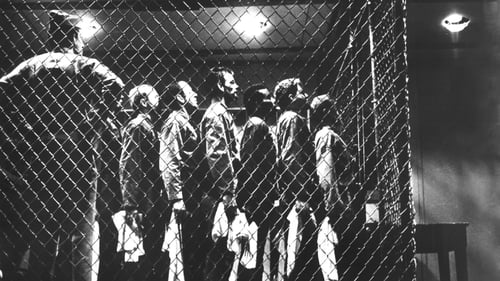
Editor
An ultra-realistic depiction of life in a Marine Corps brig (or jail) at a camp in Japan in 1957. Marine prisoners are awakened and put through work details for the course of a single day, submitting in the course of it to extremely harsh and shocking physical and mental degradation and abuse.
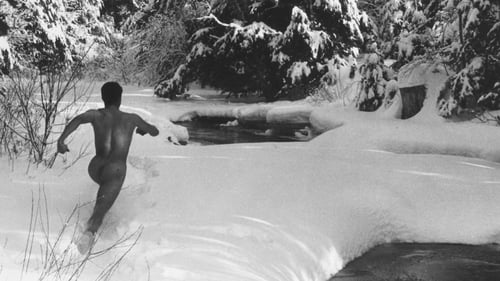
Editor
Jack and Leo vie for the affections of Vera- who appears a little differently to each man- over the course of a series of energetic sketches, flashbacks and homages.

Writer
Jack and Leo vie for the affections of Vera- who appears a little differently to each man- over the course of a series of energetic sketches, flashbacks and homages.

Director
Jack and Leo vie for the affections of Vera- who appears a little differently to each man- over the course of a series of energetic sketches, flashbacks and homages.
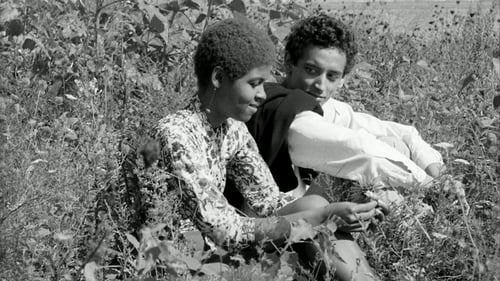
Gregory
A depressed woman, Barbara, is on the verge of suicide while a man she meets in a church and a married couple try to convince her that life is worth living.

Director
Early Short by Adolfas Mekas, apparently credited as "George Binkey."
